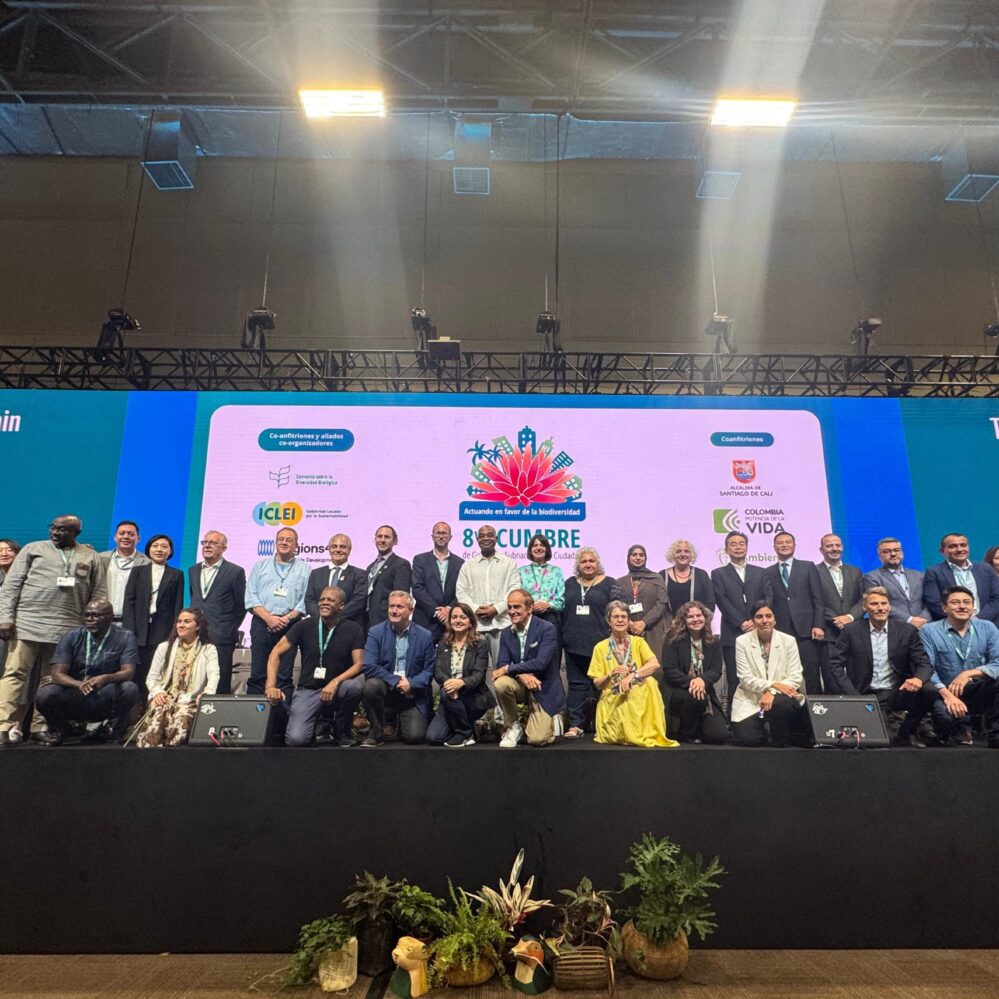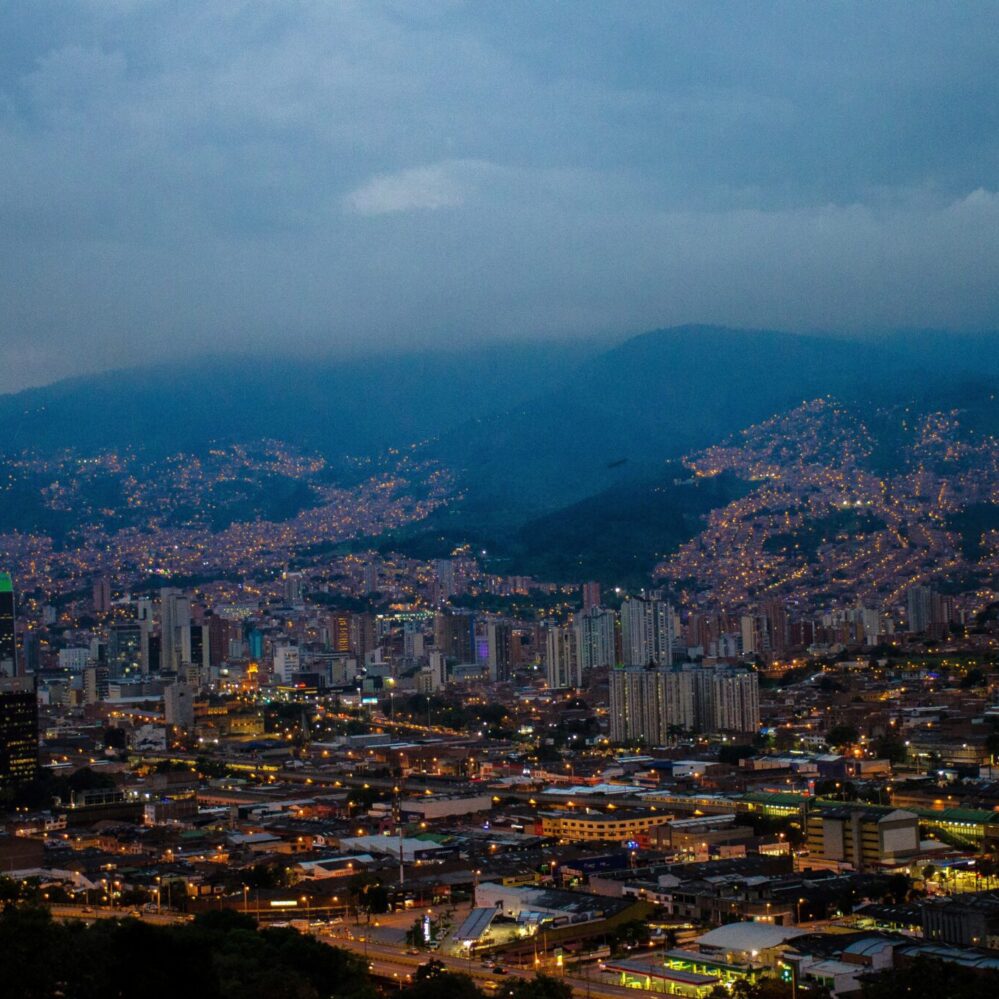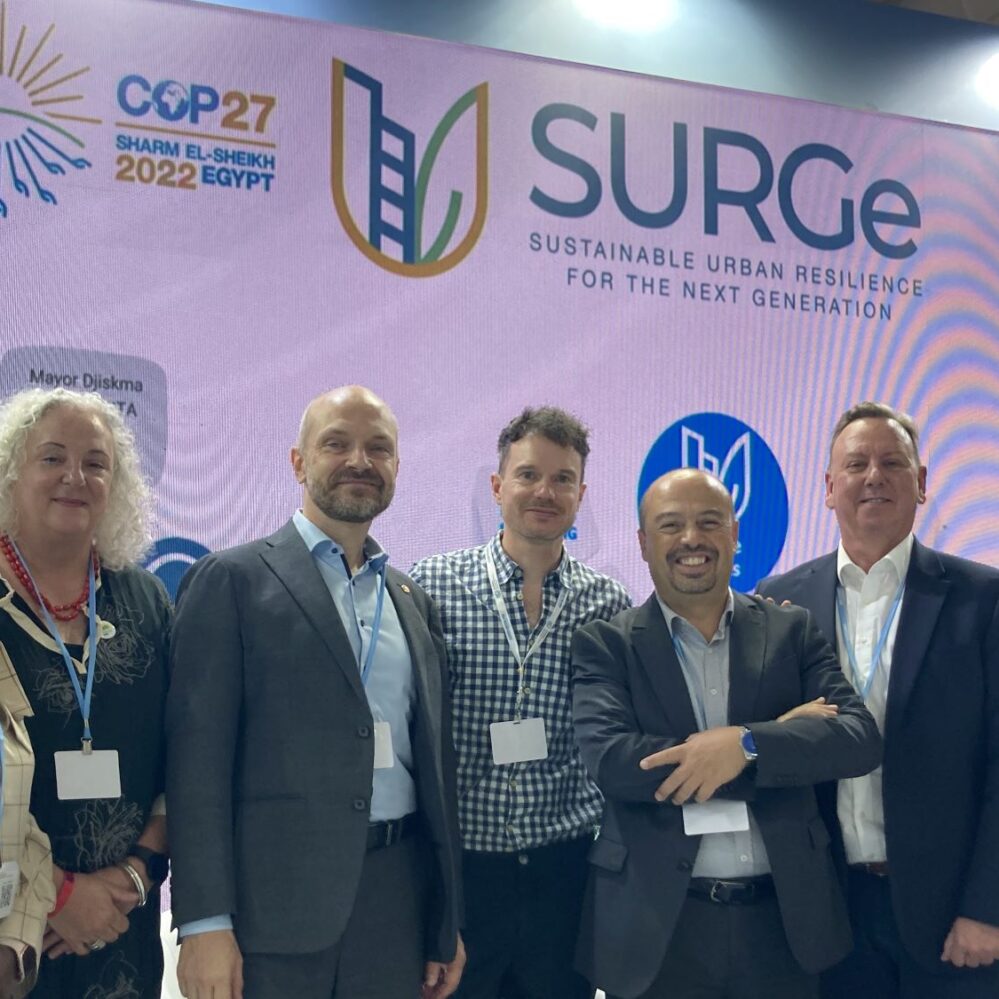Co-hosted by ICLEI-Local Governments for Sustainability and GlobalABC, as co-leads of the Marrakesh Partnership Human Settlements System, the Global Climate Action Human Settlements session on 20 November at COP29, focused on “Investible NDCs for subnational action – building towards low-carbon, resilient cities “.
In her opening remarks, Razan Khalifa Al Mubarak, UN Climate Change High Level Champion for COP28, highlighted the actions that local governments are already taking.
“Subregional actors are leading the charge; they are demonstrating that ambitious and decisive climate action is not only possible but profitable. Here are a few examples: Vancouver, Helsinki, and California have all introduced carbon limits on new buildings.”
Beyond political will, subnational governments need support to scale up these efforts towards low-carbon and resilient buildings and cities through actionable targets and adequate financing. Non-state actors are already leading local action, benefiting people, place and climate; however, daring leadership is needed from national governments to go further, and faster.
Kobie Brand, ICLEI Deputy Secretary General and Regional Director of ICLEI Africa, added: “We know we need to re-envision what a resilient city looks like, especially when we consider the diabolical issues that overshoot on 1.5′ will mean for many of our already-most vulnerable urban areas.
The revision of Nationally Determined Contributions (NDCs) in 2025 provides an unprecedented opportunity to step up quantified and investable sectoral targets, while including subnational territories and actors, and emphasizing adaptation and resilience.
This session aimed to set the vision for 2030, discussing with actors, their vision for NDCs 4.0 to be published in 2030, and how the critical revision process of NDC 3.0 of 2025 can support and accelerate ambition. Discussions were framed within overarching strategic initiatives that support multilaterism and multilevel collaborations, such as the Sustainable Urban Resilience for the Next Generation (SURGE), and the Coalition for High Ambition Multilevel Partnership for Climate Action (CHAMP), as well as sectoral initiatives including GlobalABC’s Subnational Action Group, the Buildings Breakthrough, and the Cool Coalition.
Extreme heat is a growing challenge in cities. Almost one-third of the world’s population faces dangerous temperatures for more than 20 days a year, while heat waves cause 12,000 deaths annually. Panelists explained how extreme heat is also affecting the economy. The Cool Coalition has come together rapidly under the recognition that ensuring the transition to efficient, climate-friendly cooling for all is fundamental for climate action and sustainable development.
The session showcased subnational actors leading the way, highlighting the need for localizing NDCs, and opportunities for effective multilevel governance and local financing.





